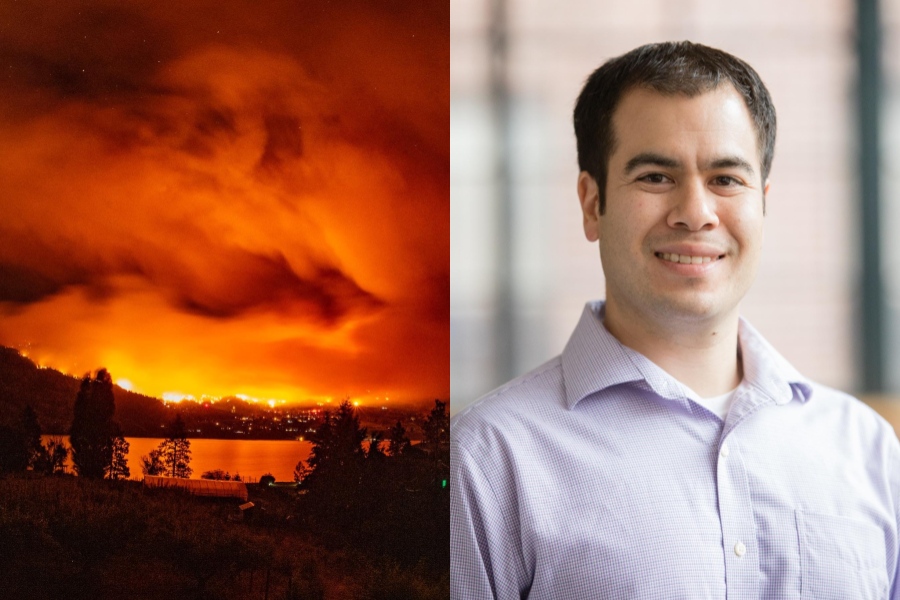
In early March, the National Weather Service issued the first Red Flag Warning of the year for counties in southeastern Minnesota. In addition, recently released seasonal climate data predict this spring and summer to be hotter and more humid than average in most of the U.S. and Canada.
As the wildfire season stretches longer each year and extreme temperatures become more frequent, there may be implications for long-term health and worsening air pollution.
University of Minnesota School of Public Health Assistant Professor Jesse Berman is available to comment on how climate change can impact air quality and health.
Jesse Berman
“Climate change is a recognized extreme weather multiplier, meaning it increases the likelihood of individual harmful weather events such as heat waves, wildfires, droughts or floods. Resulting or related air pollution from these events is one of the most broadly significant environmental hazards."
“Wildfire smoke or dust storms degrade air quality, often transporting pollutants to communities hundreds or thousands of miles away from where they originated. Shifts in extreme temperatures, cloud cover and precipitation can also promote the secondary formation of harmful gasses and particles that contribute to locally elevated air pollution.”
“Exacerbating this issue are compound extreme weather conditions — wildfire smoke during a heat wave or poor air quality amidst drought conditions — which are particularly bad for human health as they can magnify harmful environmental conditions and increase the health risks for vulnerable populations. The most at-risk populations include children, the elderly, people with pre-existing conditions and people who work outdoors.”
“Most people will experience mild health consequences due to poor air quality such as itchy eyes, scratchy throats, mild cough or difficulty sleeping. Symptoms can become quite serious for vulnerable individuals including exacerbation of asthma or respiratory conditions, dehydration, heat stroke or cardiovascular distress. In extreme cases, prolonged exposure to heat waves or wildfire smoke events can increase your risk of death.”
Jesse Berman is an assistant professor in the School of Public Health. He is an environmental epidemiologist whose research investigates the relationship between human health and complex environmental exposures.
Contact
Jesse Berman, [email protected]
- Categories:
- Health
- Environmental health
- Health conditions
- Population health




